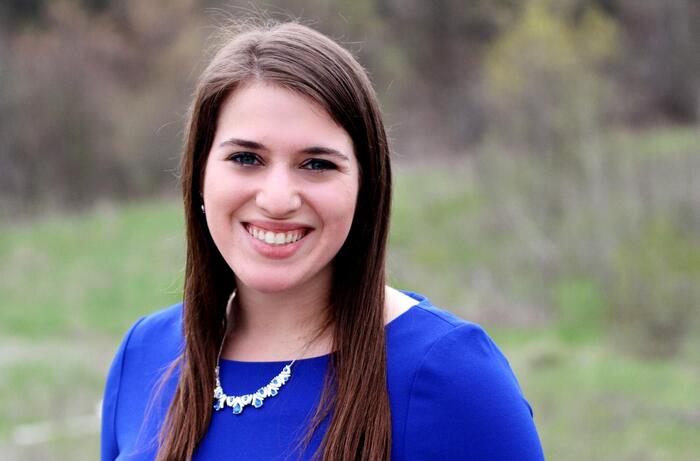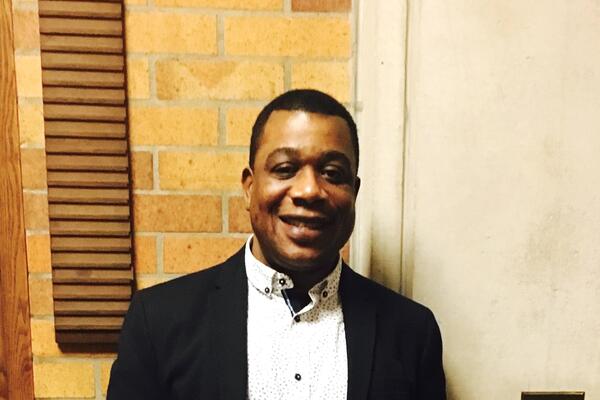 Pursuing a deeper understanding of resilience while integrating her interests in the fields of education and psychotherapy charted an expansive journey of learning for Jodi Basch, PhD ‘23.
Pursuing a deeper understanding of resilience while integrating her interests in the fields of education and psychotherapy charted an expansive journey of learning for Jodi Basch, PhD ‘23.
Jodi began her academic career at Queen’s with a Bachelor of Education before pursuing her graduate degree in Counselling Psychology. After working with elementary students in Ottawa and later as a trauma therapist, she returned to studies at Queen’s and has recently completed her PhD in Education, looking at the ways in which psychological experiences and non-academic factors inform educational performance.
Her journey from psychotherapy back to education started with exploratory questions in 2018. She reached out to Professor Benjamin Kutsyuruba, one of her instructors during her undergraduate degree and doctoral supervisor, to ask “what would it mean to do a PhD? What doors would it open?”
“We laugh now because he thought I was asking him to supervise me and I just wanted to gather information,” recalls Jodi. “I realized right away how good of a fit we were and that if I wanted to develop psychological wellness curriculum or consult for universities or work with students to help them navigate their educational experiences, this was the path forward.”
Jodi’s research focused specifically on resilience and postsecondary student leaders as they transitioned from high school to university, with the intention of identifying the right supports, resources and communications channels needed to help young adults navigate this period.
The beginnings of this area of research actually came several years earlier during her undergraduate years, when she worked in an all-female residence.
She explains that during that time, many students formed positive relationships with her and naturally opened up about their emotional concerns and challenges. Jodi observed these students successfully navigate their educational experiences - attending classes, making friends, and engaging in a fulfilling life - and display a high level of resilience and authentic leadership (leading according to their values) despite their life challenges.
“That sparked in me a passion for trying to figure out why some students were doing really well. I realized a lot of them had factors going against them and situations where - on paper - they shouldn't be doing well, but they were thriving.”
Jodi says she chose to focus her research on students starting university because young adulthood is a stage of extensive life transitions, when mental illnesses often emerge in the absence of appropriate interventions.
Resilience through the pandemic
Originally, Jodi intended to study first-year Queen’s students living away from home and residing in Residence. Queen’s offered a unique environment for this research, as over 90% of first-year students live away from home.
However, at the time in 2021, Residence was not operating as usual because of COVID restrictions. Jodi adjusted the criteria to include first-year students living in Residence and those who wanted to but couldn't live away from home because of COVID, and compared the two groups.
“While originally I was looking at the challenge of living away from home for the first time, I recognized there also was the challenge of not being able to experience your first year the way that you wanted to, and I actually think that made for a really rich research experience,” she explains. “Resilience has become a buzzword through the pandemic. I wanted to make sure I was looking at it from the perspective of not minimizing the students’ concerns or challenges, but honouring their process and growth.”
During Fall 2021, she invited all first-year Queen’s students to complete a survey about their experiences. Of the 1012 participants, those who scored as highly resilient - in the 75th percentile and above - were invited to form five focus groups. She also completed 10 individual interviews, where she invited two participants from each focus group to further share their experiences as they related to Jodi’s four research constructs: resilience, authentic leadership, transition and well-being.
Challenges participants shared in the individual interviews included those related to coping with COVID-19, such as academic, environmental, and emotional difficulties. Interview participants were also welcome to share regarding any situations that may have impacted their well-being other than transitioning to university. These other significant life events included the death of a family member, sexual assault, rejection, dissolution of a relationship, other interpersonal problems, and mental health concerns.
Her findings showed that resilience and authentic leadership were significantly correlated. Students who considered themselves highly resilient also considered themselves to be authentic leaders and vice versa. Jodi found no significant difference between students living in Residence and those living off campus; the highly resilient students did well regardless of where they lived.
“Humans are remarkable and have the capacity for adaptation. Resilience is nuanced and we all can have the capacity to be able to tap into it, but it doesn't always come easy and that's okay.”
With her PhD now completed, Jodi anticipates continuing to build her psychotherapy practice with a view to pursue teaching and consulting opportunities at universities in order to translate her findings into positive impacts for students.
“I wouldn't consider my PhD journey or my career to be linear. Research definitely informs my practice and I think my practice in turn informs my research; I'm excited to see how that can extend to the community outside of just myself and my clients.”

